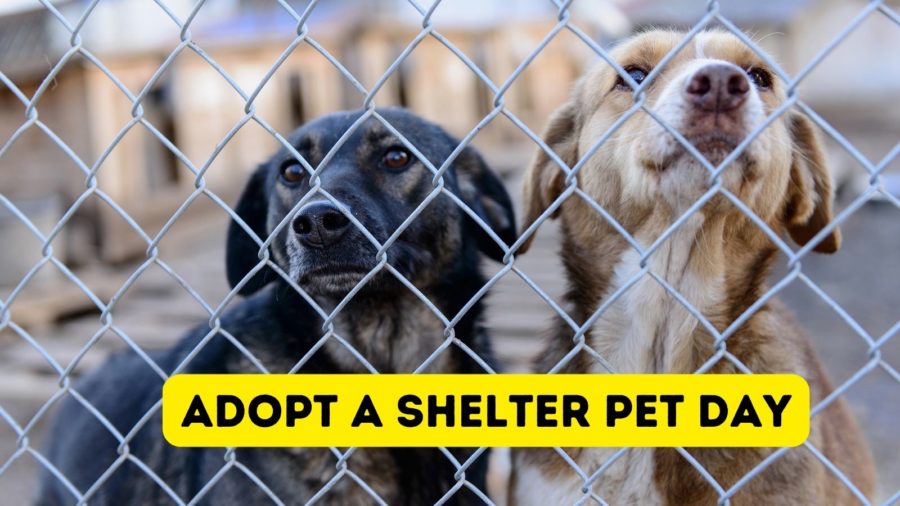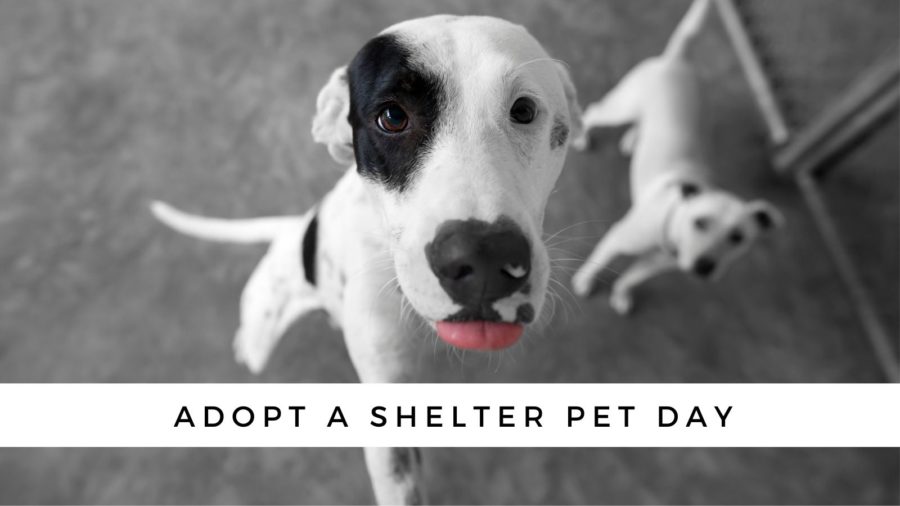National Adopt A Shelter Pet Day (and what you need to do!)
A day to shine a spotlight on the estimated 3.3 million dogs and 3.2 million cats who find themselves in the U.S. shelter system each year, April 30th has been declared National Adopt a Shelter Pet Day.
Many shelters are marking the pet holiday with lowered adoption fees, so if you are pondering the possibility of becoming a pet parent why not celebrate the day by finding your new furry family member at your local shelter!

Why Adopt a Shelter Pet?
- To quote a phrase which has gained fame among animal lovers, “Saving one dog will not change the world, but surely for that one dog, the world will change forever.” According to Best Friends Animal Society, close to 5,500 adoptable dogs and cats lose their lives in the U.S. shelter system every day. By choosing to save a life through shelter adoption, you will be actively taking part in the effort to turn the tide on this staggering statistic.
- Animal shelters are filled with one-of-a-kind canines and cats! Studies have shown that mixed breed pets often enjoy better overall health and a longer life span than a purebred pet. However, if you have interest in a specific breed, The Humane Society of the United States states that 25 percent of dogs in the shelter system are purebred.
- The majority of puppies sold in pet stores have been taken from mothers who live out their lives in the cramped confines of unhygienic cages, continuously producing litters, so adopting from a shelter is one way to take a stand against puppy mills.
- Since shelter animals are already spayed/neutered and up to date with their vaccinations, you will not only save money when you adopt a shelter pet, you will also receive a priceless gift in the process…the love and loyalty of a four-legged friend.
How to Help When Adoption Isn’t an Option
Although we as animal lovers are unable to offer every dog or cat a permanent home, we can show that each companion animal in need has a home in our hearts by taking steps to increase their chances of finding a forever pet parent:
- Help to open up kennel space at your local animal shelter by temporarily opening your home to a homeless animal as a foster parent. The room you create by taking on a temporary ‘roomie’ will give both your new barking buddy or purring pal and a newly-arrived shelter animal the much-needed time it takes to get adopted.
- Give a shelter animal the present of a friendly presence by volunteering at your area shelter. By socializing kittens, taking appealing pictures of adoptables to post on social media or by giving a dog a break from a day spent behind bars by taking him or her for a stroll, you will bring joy to a canine or cat… and that happiness will attract potential pet parents!
- Many shelters post wish lists consisting of vital everyday items on their social media platforms. Make one of your shelter’s wishes come true by making a donation of blankets, toys, etc.
- It’s been said that every picture tells a story, and for homeless animals a good shelter photo can help their story end with “…and they lived happily ever after.” Take a few moment to circulate snapshots of shelter animals from adoption sites such as AdoptAPet, Petfinder, PetHarbor and Petango via social media channels (Twitter, Facebook, Instagram) and increase that animal’s exposure to a pet-loving public.
The last day in the month of April will be the start of a new chapter in the lives of many homeless dogs and cats as National Adopt a Shelter Pet Day shines a spotlight on the need to choose the option of pet adoption.
Facts about Shelter Pets

- Most companion animals did not wind up in a shelter due to any fault of their own. The most cited reasons given by guardians for relinquishing a dog to a shelter are 1) relocation to housing with a no pets policy and 2) too many pets.
- For those who have their heart set on a purebred dog, 20 to 30 percent of our four-legged friends who enter U.S. shelters are purebred. Along with looking in local shelters, potential pet parents can also contact breed specific rescue organizations in their area.
- By finding your pal with paws at a shelter, you are playing an active role in efforts to put an end to puppy mills.
Related pet holiday: Adopt a Shelter Dog Month
Our Adopt a Shelter Pet Story!

Recently one of our community members asked me what we knew about Barli’s history…and the answer is not too much! We adopted him on March 13 and gathered all the info we could while we were at the shelter, although much of Barli’s past is a mystery!
Barli was found in December as a stray. The shelter got a call from animal control that a puppy had been found; they went and looked for littermates but none were to be located. Even then, Barli was as cute as could be and it’s easy to see why they named him Baby Bear:

He’d been found covered with fleas:
